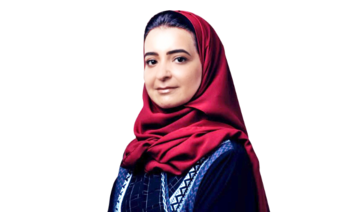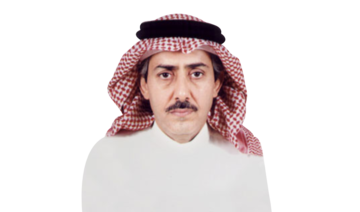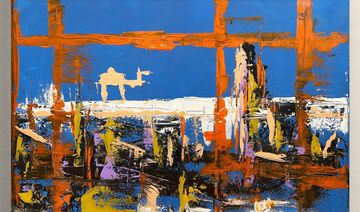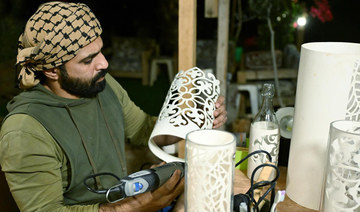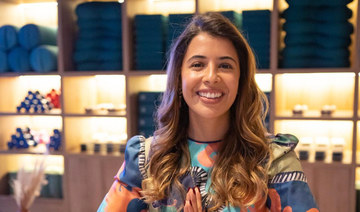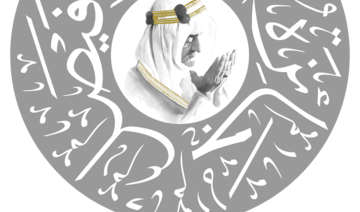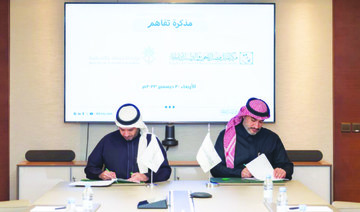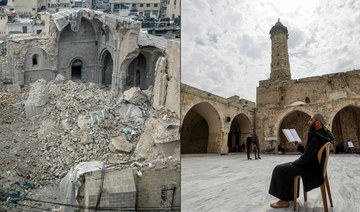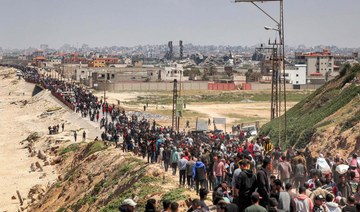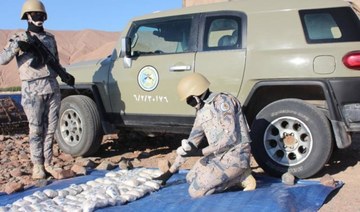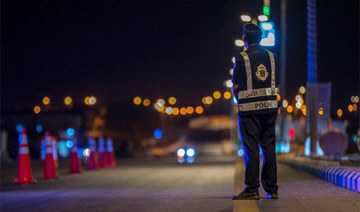Dr. Abdulrahman Al-Assimi is the newly appointed director general of the Arab Bureau of Education for the Gulf States (ABEGS).
ABEGS is an intergovernmental regional organization working within its member states to promote cooperation and coordination in the fields of culture, education, science, information, and documentation.
Al-Assimi said: “I highly value and appreciate his excellencies the ministers of education in the member states of ABEGS for approving my appointment as director general of the bureau, and I am looking forward with them to develop the quality of education in the region and to efficiently enhance the educational cooperation among the member states.”
Prior to taking on the bureau role, Al-Assimi had been Saudi deputy minister of education since April 2017. He gained a bachelor’s degree in geography from King Saud University in 1986, a master’s degree in curriculum and teaching methods four years later, and a Ph.D. in the same field of study in 2001, both from West Virginia University, in the US.
He began his career as a teacher before switching to administrative roles in the education department where he served as a supervisor, director of education, a Shoura Council member, and director of Prince Sattam bin Abdul Aziz University.
From 2001 to 2003, he was director of practical program management at the Ministry of Education having previously been a curricula supervisor of national education at the ministry.
For one year starting in 2003, he held the position of assistant director general of educational research at the Ministry of Education and was director of education for Al-Kharj region from 2004 to 2005.
Who’s Who: Dr. Abdulrahman Al-Assimi, DG of the Arab Bureau of Education for the Gulf States
https://arab.news/5pkmm
Who’s Who: Dr. Abdulrahman Al-Assimi, DG of the Arab Bureau of Education for the Gulf States
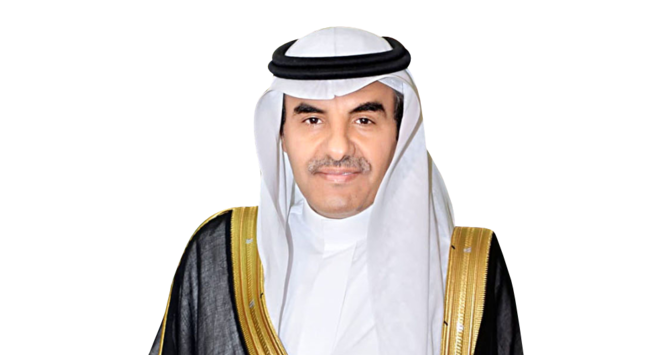
Young Saudi artist finds beauty in the ordinary
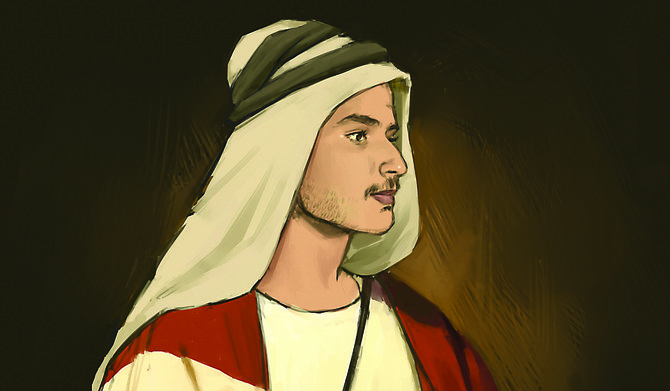
- Dana Almasoud’s works are inspired by historical Middle Eastern and European art aesthetics
RIYADH: When picking up a pencil or paintbrush to create an artwork, self-taught Saudi artist Dana Almasoud channels her inner child.
“As soon as a child picks up a pencil, they attempt to draw or capture a sense of what they see through their eyes on paper. The majority of them stop at some point in their childhood, for whatever reason,” Almasoud told Arab News.
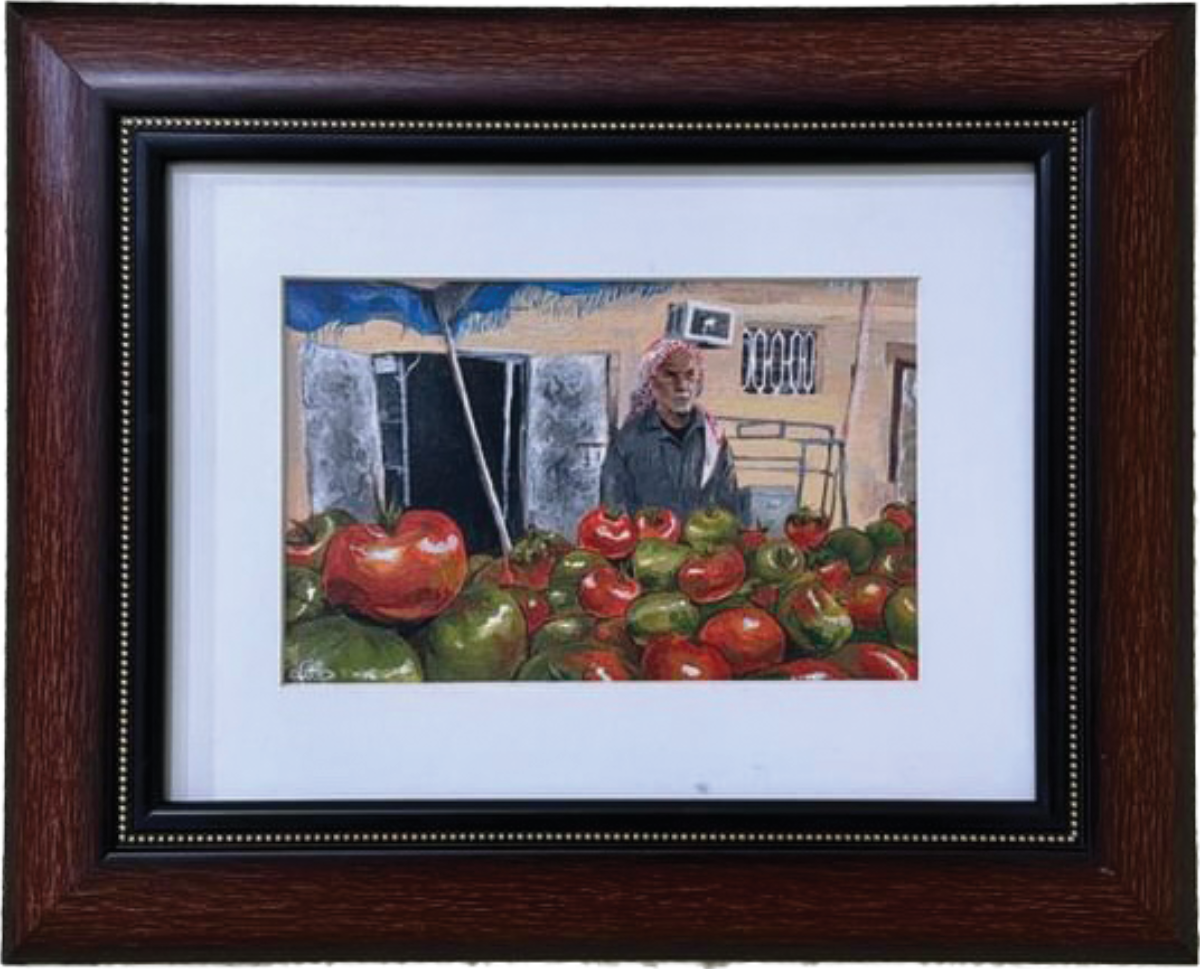
“Fortunately, I was one of the few who never did. I had the luxury of a supportive mother who always looked forward to my next scribble.”
While pursuing her undergraduate studies in finance, as a freelance artist Almasoud explores a variety of styles, from fine art to surrealism and fantasy inspired by everyday scenes.
HIGHLIGHTS
• Much of Dana Almasoud’s work is inspired by Islamic historical art, characterized by its symbolism and emphasis on the beauty of spirituality.
• One of her first works inspired by Saudi culture was a commission from a man who wanted a portrait in the orientalist style.
• The artist says her work is an attempt to fill the void that excess simplicity and minimalism has created in recent years.
“The warm morning sun, the singing of the birds, the stoplights and the people. I am surrounded by life and I do my best to pour what I see into my work. What makes us human is how we make things from nothing,” she said.
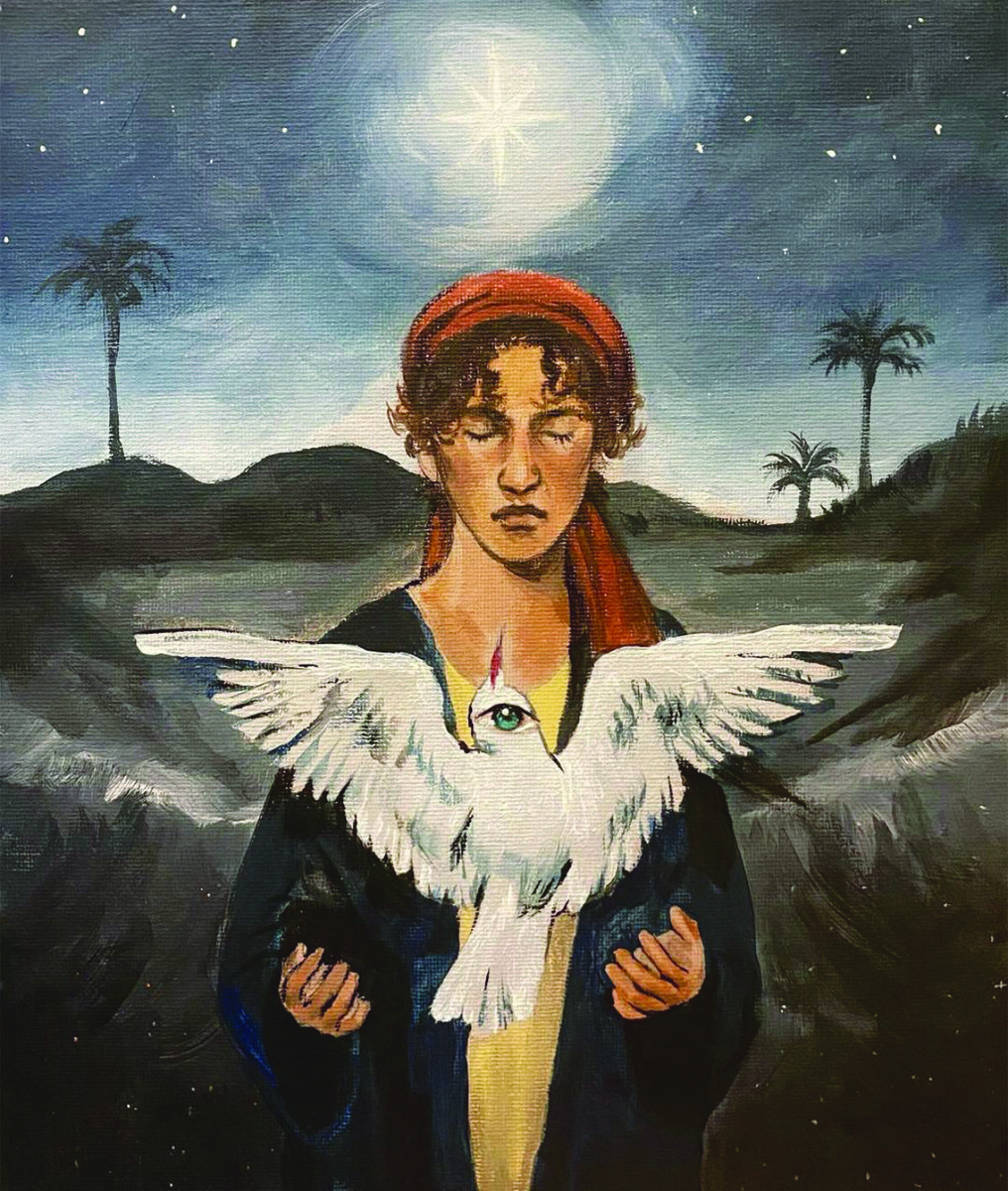
Speaking about the “sanctuary” she has created in her room, she said: “It took me years of collecting, arranging and a lot of dedication to get it to how it is now.”
Much of Almasoud’s work is inspired by Islamic historical art, characterized by its symbolism and emphasis on the beauty of spirituality.
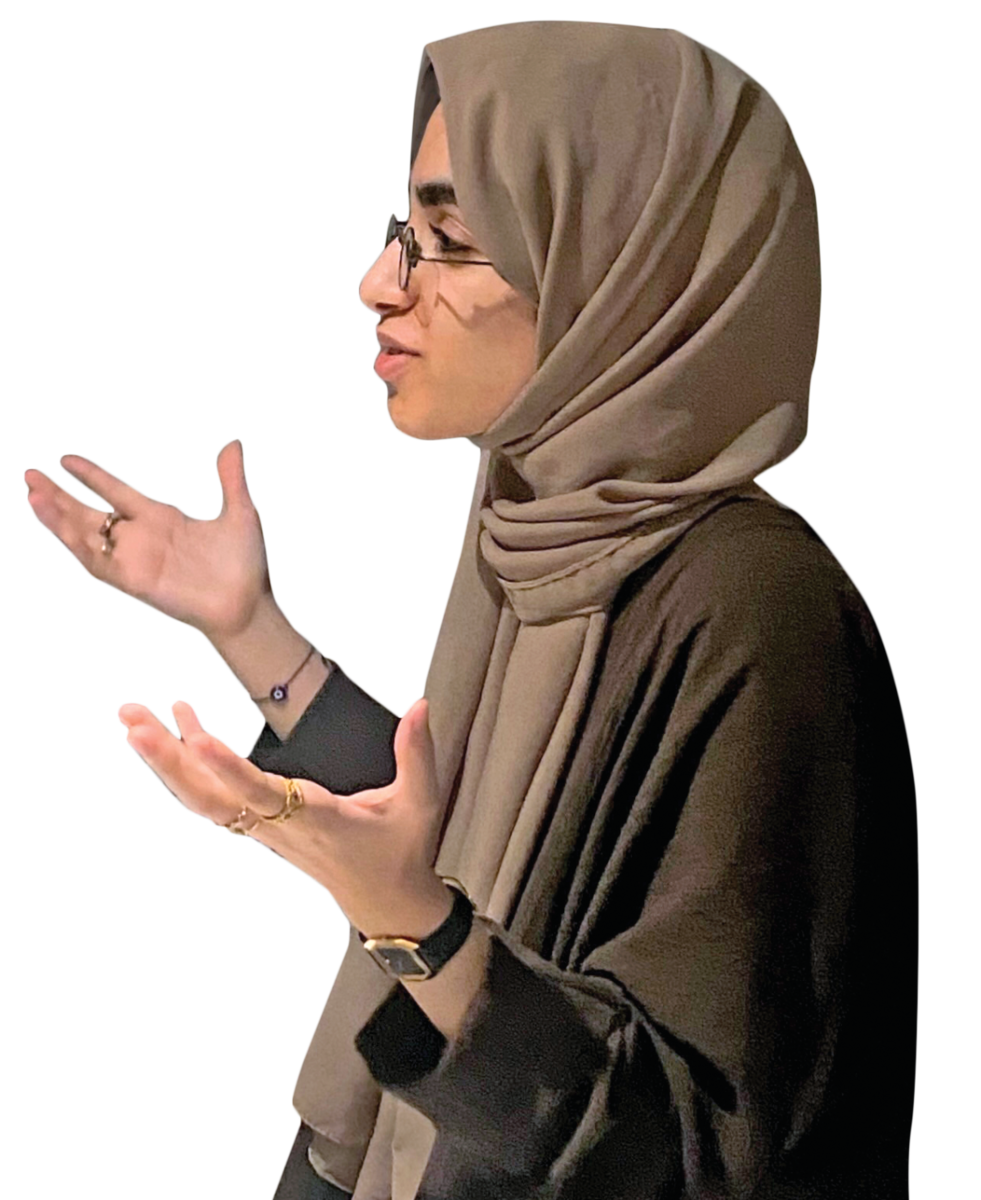
“In order for me to create things that resemble life, it only makes sense to use colors that already exist in nature,” she said.
“I take a lot of inspiration from historical art, both from Europe and the Middle East, since the pigments they used were extracted from natural sources and were perfectly saturated.”
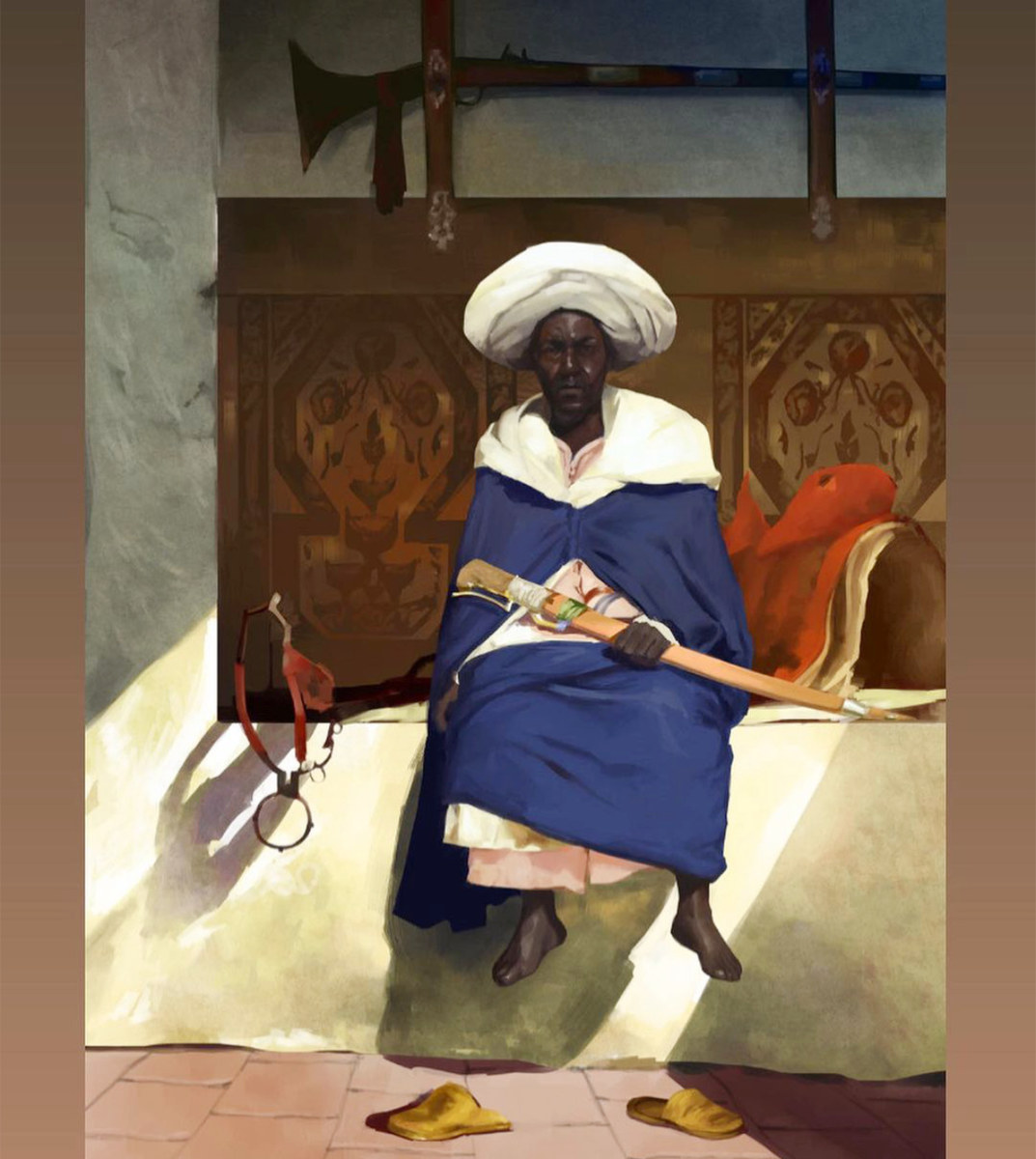
She enjoys experimenting with new mediums, but drawing with a pencil is her preferred choice.
“I also do enjoy the occasional challenge of an ink brush, because once it sets its bristles on paper, you cannot go back. When it comes to painting with color (watercolors, acrylics, oils), I still consider myself in the process of learning,” she said.
The warm morning sun, the singing of the birds, the stoplights and the people. I am surrounded by life and I do my best to pour what I see into my work.
Dana Almasoud, Saudi artist
“I also experiment with pyrography, doll making, embroidery, linoleum block printing and, soon, murals.”
Almasoud said one of her first works inspired by Saudi culture was a commission from a man who wanted to look like an orientalist.

Her most recent painting is of a man selling ramsi tomatoes, the seasonal heirloom fruits with green “shoulders” that are prevalent in Qatif.
“These tomatoes are known for a special flavor and a lot of farmers from various lands tried to grow it themselves, but to no avail. For some reason, these tomatoes only taste special when they grow on that specific piece of land,” Almasoud said.
She said she had been told her work had “a layer of fog, where the edges are never harsh,” which reflects the high levels of humidity in the Eastern Province where she lives.
“I can see the Arabian Gulf from the window of my room. You can imagine the high rates of humidity, which is where I think that layer came from,” she said.
“I will always wonder how this translated into what I draw, but regardless, I do love it.”
Almasoud said her art was an attempt to fill the void that excess simplicity and minimalism has created in recent years.
“My art is an attempt to inspire people back to see the beauty in complexity and the intricacy of the small things in life.”
Speaking about the importance of art in the modern world, she said: “With the increase in the pace of the world, art has become even more important. It gives people and their minds something to hang on to, for them to not lose themselves and their identities in a busy world.”
For more information about the artist visit @esotericdana on Instagram.
Saudi couple aim to bring art of yoga to every home
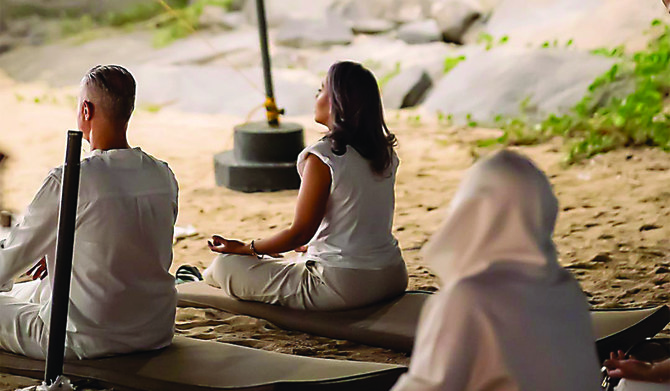
- Al-Zahrani said that the Kingdom was encouraging yoga practice and its dissemination as it fostered a healthier community, both physically and spiritually
JEDDAH: Khalid Al-Zahrani and Haifa Mahzari are a young Saudi couple who aspire to bring the benefits of yoga to every home.
They spent years researching and practicing yoga before launching Ananda Yoga Studio in Jeddah in 2019, and offered free courses and continue to give back to the community.
“Yoga has a significant impact on the mind and body. We want to help those in need and promote yoga to all ages because it is beneficial to joints and can be practiced at any age,” Mahzari said. “We also offer voluntary and awareness classes.”
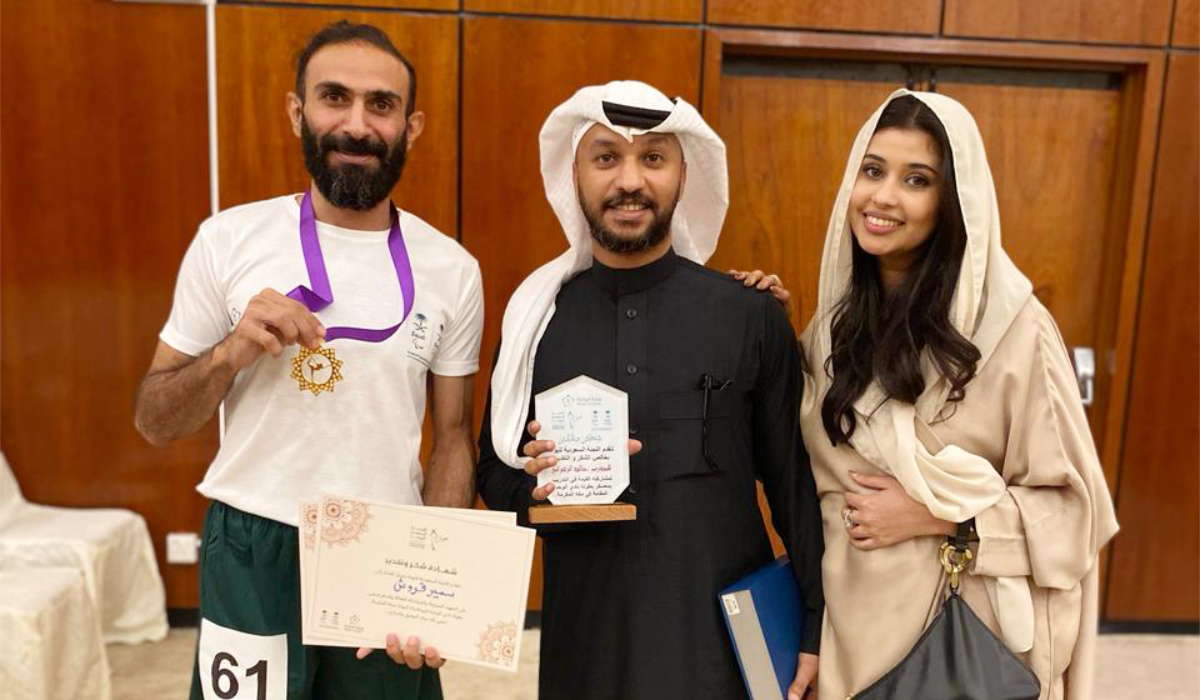
Mahzari knew very little about yoga when she first met Al-Zahrani, but his commitment to the practice inspired her to give it a try. After reading books about yoga and doing research, she realized the value and health advantages of the practice and developed an obsession with it.
Al-Zahrani had trained under numerous instructors. Nouf Al-Marwaai, the first Saudi yoga acharya, first Arab recipient of the Padma Shri Award and president of the Saudi Yoga Committee, was one of the trainers who saw his dedication.
“I obtained a 200-hour instructor certificate and a 500-hour master certificate, and I have a level one and two Himalayan meditation certificate,” he said.
FASTFACTS
• Khalid Al-Zahrani and Haifa Mahzari spent years researching and practicing yoga before launching Ananda Yoga Studio in Jeddah in 2019.
• Their team competed in the Saudi Yoga Asana Championship organized by the Saudi Yoga Committee under the umbrella of the Ministry of Sport.
• The yoga center also offers qualified instructors for kung fu, shaolin, chi kung and other Chinese martial arts.
Al-Zahrani added: “We competed in a competitive yoga tournament and won the gold and silver medals in 2023 and two gold, two silver and one bronze medal in 2024.”
The tournament was organized by the Saudi Yoga Committee under the umbrella of the Ministry of Sport.
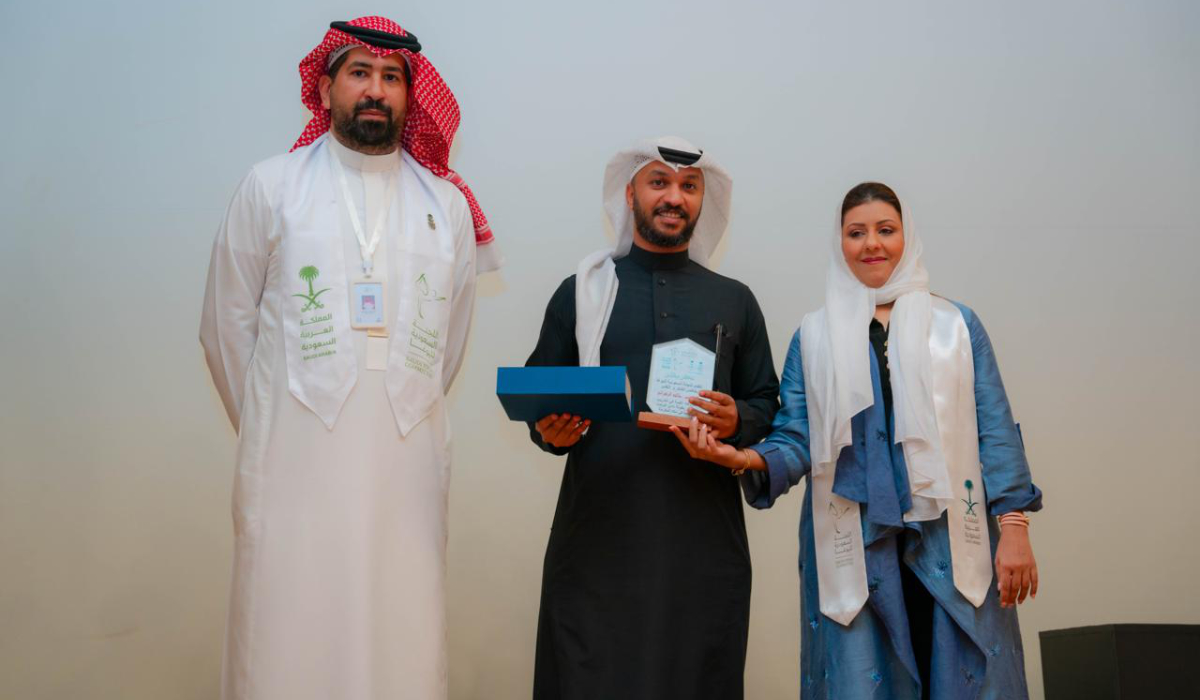
Al-Zahrani received support from the committee to open Ananda Yoga and was awarded many gold medals at the Saudi Yoga Asana Championship.
The International Yoga Sports Federation nominated Al-Zahrani for a scholarship in April, for the “advanced international yoga asana coach” certification program.
This is in recognition of his work founding the first Saudi yoga asana squad, called “Team Ananda,” which competed in several regional competitions, winning first place.
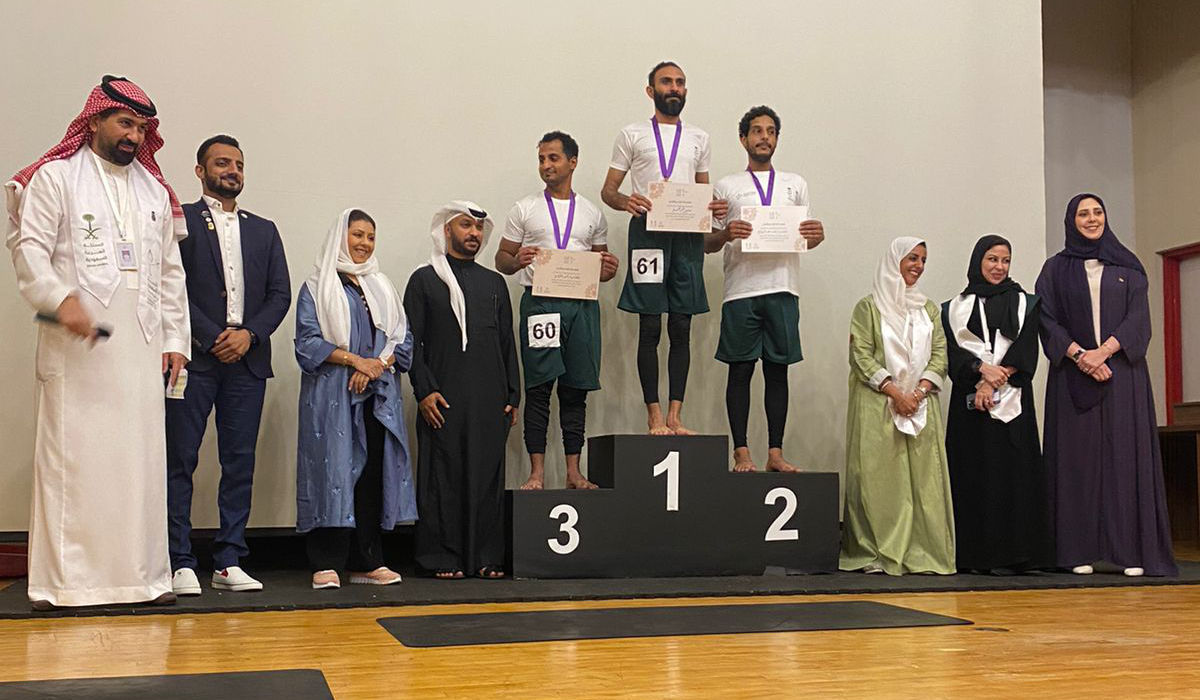
“The Saudi Yoga Committee has given me unending support, whether it be through the courses they helped me complete, the certifications they gave me, the yoga judges courses or the scholarship to (attend the) yoga instructor training program in Switzerland at their headquarters,” Al-Zahrani said.
Many have trained at Ananda Yoga Studio, making it a success story for yoga enthusiasts in Jeddah, and with plans to open more locations throughout the Kingdom.
Al-Zahrani said that the Kingdom was encouraging yoga practice and its dissemination as it fostered a healthier community, both physically and spiritually.
Numerous yoga sessions are offered by the studio, including children’s yoga and yoga for anxiety and stress, among others. The center also offers qualified instructors for kung fu, shaolin, chi kung and other Chinese martial arts.
Riyadh governor to attend King Faisal Prize ceremony on Monday
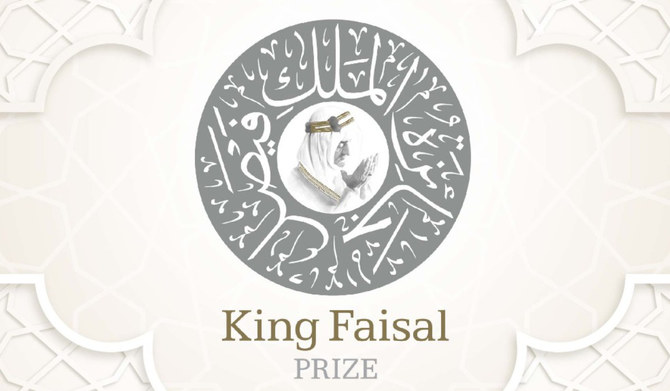
- The King Faisal Prize was established in 1977, and was given for the first time in 1979 in three categories: service to Islam, Islamic studies, and Arabic language and literature
RIYADH: Under the patronage of King Salman and on his behalf, Riyadh Gov. Prince Faisal bin Bandar will attend a ceremony on Monday to present awards for laureates of the 46th King Faisal Prize in the capital.
The King Faisal Prize general secretariat earlier announced the winners for the 46th session in 2024. The service to Islam prize was jointly awarded to the Japan Muslim Association and Dr. Mohammad Al-Sammak of Lebanon.
The Islamic studies prize was granted to Dr. Wael Hallaq, a US national, while the Arabic language and literature prize was withheld.
Dr. Jerry Roy Mendell, a US national, was granted the medicine prize, while Dr. Howard Yuan-Hao Chang, another US national, won the science prize.
The King Faisal Prize was established in 1977, and was given for the first time in 1979 in three categories: service to Islam, Islamic studies, and Arabic language and literature.
Two additional categories were introduced in 1981 — medicine and science. The first medicine prize was awarded in 1982, and in science two years later.
Since 1979, prizes have been awarded to 295 laureates from 45 countries who have made distinguished contributions to different sciences and causes.
Each laureate is endowed with $200,000; a 24-carat gold medal weighing 200 grams, and a certificate inscribed with the laureate’s name and a summary of the work that qualified them for recognition.
OIC calls for action amid Gaza crisis at Jordan meeting
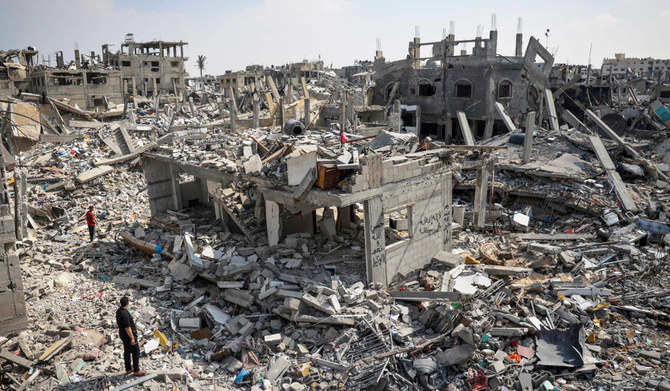
- The session was held amid serious humanitarian challenges for the Muslim world in the form of natural disasters and crises caused by conflicts and wars, Bakheet said
RIYADH: The Organization of Islamic Cooperation on Tuesday took part in the 37th session of the Islamic Committee of the International Crescent, held virtually in the capital of Jordan, Amman.
The OIC Assistant Secretary-general for Humanitarian, Cultural and Social Affairs Ambassador Tarig Ali Bakheet said the session was happening as Israel continued to escalate acts of genocide against the people of Palestine in Gaza, in clear disregard for international law, human values and divine laws and when its occupation forces were impeding the arrival of aid.
He called for concerted efforts and initiatives across Red Crescent societies in the Muslim world to contain the fallout of the situation in the Gaza Strip.
The session was held amid serious humanitarian challenges for the Muslim world in the form of natural disasters and crises caused by conflicts and wars, Bakheet said.
Effective efforts were required to alleviate the impact and dimensions of these problems, he said.
On behalf of OIC Secretary-General Hissein Brahim Taha, Bakheet thanked Jordan for hosting the session and all those who had helped to ensure its success.
The session runs until Wednesday, when the activities of the Islamic Committee of the International Crescent will be showcased.
Saudi authorities crack down on drug offenders
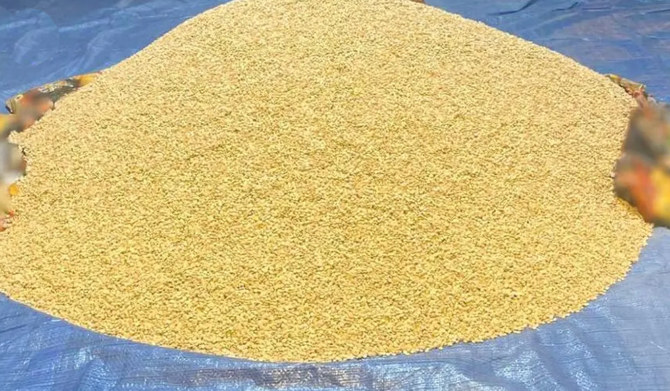
- The Saudi government urges anyone with information related to suspected smuggling operations or customs violations to call the confidential hotline 1910, the international number +966114208417, or to email [email protected]
RIYADH: Saudi authorities recently made several drug-related arrests and confiscations in operations across the Kingdom, the Saudi Press Agency reported on Tuesday.
Border Guard land patrols in the Jazan region thwarted an attempt to smuggle 120 kg of qat. The patrols also foiled an attempt to smuggle 170 kg of qat in Al-Ardah governorate of the same region.
The General Directorate of Narcotics Control arrested two residents, a Pakistani and an Egyptian, in the Eastern Province for attempting to sell 1.2 kg of methamphetamine, a narcotic substance commonly referred to as “shabu.”
Additionally, authorities arrested a citizen in the Qassim region for selling amphetamines.
Preliminary legal procedures have been completed for all the individuals involved and all seized items have been handed over to the relevant authorities.
The Saudi government urges anyone with information related to suspected smuggling operations or customs violations to call the confidential hotline 1910, the international number +966114208417, or to email [email protected].
Tips received relating to smuggling and breaches of common customs law are treated with strict confidentiality. Financial rewards are offered for valid tips.



